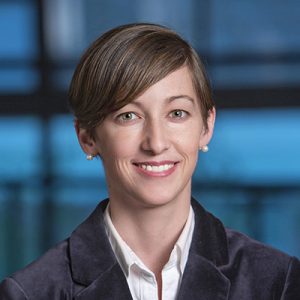
Danielle Bassett, J. Peter Skirkanich Professor in the departments of Bioengineering and Electrical and Systems Engineering, has been called the “doyenne of network neuroscience.” The burgeoning field applies insights from the field of network science, which studies how the structure of networks relate to their performance, to the billions of neuronal connections that make up the brain.
Much of Basset’s research draws on mathematical and engineering principles to better understand how mental traits arise, but also applies them more broadly to other challenges in neuroscience.
In her latest paper, “Defining and predicting transdiagnostic categories of neurodegenerative disease,” published in the journal Nature Biomedical Engineering, Bassett collaborated with the Perelman School of Medicine’s Virginia Man-Yee Lee and John Trojanowski to provide a new perspective on the misfolded proteins associated with those diseases.
The researchers used machine learning techniques to create a new classification system for neurodegenerative diseases, one which may redraw the boundaries between them and help explain clinical differences in patients who received the same diagnoses.
BioWorld’s Anette Breindl spoke with Bassett about the team’s findings.
Now, investigators have developed a new approach to classifying neurodegenerative disorders that used the overall patterns of protein aggregation, rather than specific proteins, to define six clusters of patients that crossed traditional diagnostic categories.
“We find that perhaps the way that clinicians have been diagnosing these disorders… is not necessarily the way these disorders work,” Danielle Bassett told BioWorld. “The way we’ve been trying to carve nature at joints is not the way that nature has joints. The joints are elsewhere.”
Continue reading Breindl’s article, “For neurodegeneration, a different way to slice the pie,” at BioWorld.
